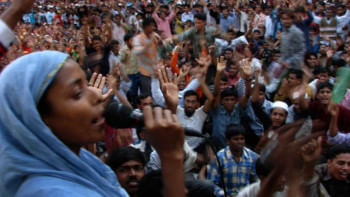Let’s end the ‘princessification’ of girls, ‘machofication’ of boys

A recent advertisement by an English medium school in Dhaka caught my attention: two boys are seen learning mathematics and robotics, while a girl is seen playing the violin. To me, it was a glaring example of gender stereotypes. After all, one might get the impression from the ad that music is for girls and mathematics and robotics are for boys only. Gender stereotypes are preconceived notions about the characteristics and roles of men and women in society. Those who subscribe to those notions believe, for instance, that men excel in engineering while teaching is better suited for women. However, the reality is that, given the right environment, both men and women can succeed in any profession.
A 2020 report on the impact of gender stereotypes during early childhood by the Fawcett Society of the UK, titled "Unlimited Potential," analyses how gender stereotypes limit children's lives, diminish girls' self-esteem, create reading skill gaps among boys, and influence their future career choices. The study observed children aged 0-7 years, a crucial period when they begin to understand their place in the world.
Due to gender stereotypes, girls as young as six years old avoid subjects that require them to be "really, really, smart." About 36 percent of girls aged 7-10 years believe that their appearance is their most important trait. This leads to body dissatisfaction and eating disorders. The pressure on boys to be breadwinners and handle any situation with stoicism contributes to higher suicide rates among men. The findings of this report are relevant to most countries, including Bangladesh.
Significant research highlights that challenging these stereotypes in early childhood can be a powerful tool in reducing violence against women and girls. Yet, we have seen a troubling rise in gender-coded products targeting boys and girls. Pink for girls and blue for boys may seem harmless, but the underlying messages are not innocent. Children's dreams are shaped by what they read, see and hear, as well as the toys they play with. Media, including newspapers, television, movies and advertisements, often portray women as weak and dependent, focused on grooming and household chores, and performing caregiving roles. Men are depicted as strong, responsible, and professionally successful. In traditional fairy tales, girl characters are weak, in most cases "rescued" by princes.
A stark division is evident in the toys available to children. Girls are seldom given opportunities to play with science, technology, engineering and mathematics (STEM) toys. Boys' toys rarely focus on nurturing or caring attributes, which reinforces a lack of emotional expressiveness. These experiences have lasting impacts, which limit children's future career paths and personal development.
Parents and guardians often assign different tasks to boys and girls. The emphasis on raising girls as "princesses" and telling boys that "boys don't cry" is still prevalent in many families. Parents hold different expectations regarding what boys and girls can achieve. Research shows that parents' ideas about their children's abilities are formed as early as at the age of 11 months. Among other things, this affects children's play. For example, as girls get older, they participate less in sports; and as a result, their skills in it also decline.
Social norms about what girls and boys should or should not do influence parents and teachers, which in turn affects young people's decisions regarding studies and working lives. Traditional beliefs discourage girls from studying STEM subjects and pursuing related professions. Men face resistance if they want to choose professions that require caregiving. Men and women are not able to realise their potential when they feel obliged to conform with gender stereotypes, which is a loss for the entire society.
There should be government directives in Bangladesh to ensure that the media does not promote gender stereotypes, and there should be initiatives to enhance teachers' skills to make them aware of the stereotypes and help them address them through teaching methods. Manufacturers and advertisers must avoid stereotyped schemes in product design and packaging. The messages coded in advertising through gendered imagery and themes must be critically examined and restructured.
The change has already begun. Books and films featuring female characters as brave and in leading roles are being produced, and there is a trend of rewriting old fairy tales. These new narratives present women as ambitious, confident, and engaged in leadership, acting as friends and comrades to men. We need many more such stories that challenge gender stereotypes.
Children are born with immense potential. Isn't it a tremendous waste of human capacity to confine them to limited roles? Parents and guardians must carefully choose books, toys, films, and other materials for children to avoid giving them anything that conveys the stereotypes. If parents equally share household and external responsibilities, children will follow and in the process develop positive notions about the roles of men and women. Teachers should also encourage boys and girls to believe in their abilities. Our goal should be to provide the entire range of experiences and options to all children. We must end the "princessification" of girls and the "machofication" of boys.
Boys and girls should have opportunities to study any subject and choose any profession to realise their dreams. To create this environment, the government, parents, teachers, social workers, writers, artists, media workers, all have to step up and carry out their responsibilities. The foundation for a society based on equality has to be built during childhood.
Laila Khondkar is an international development worker.
Views expressed in this article are the author's own.
Follow The Daily Star Opinion on Facebook for the latest opinions, commentaries and analyses by experts and professionals. To contribute your article or letter to The Daily Star Opinion, see our guidelines for submission.

 For all latest news, follow The Daily Star's Google News channel.
For all latest news, follow The Daily Star's Google News channel. 







Comments